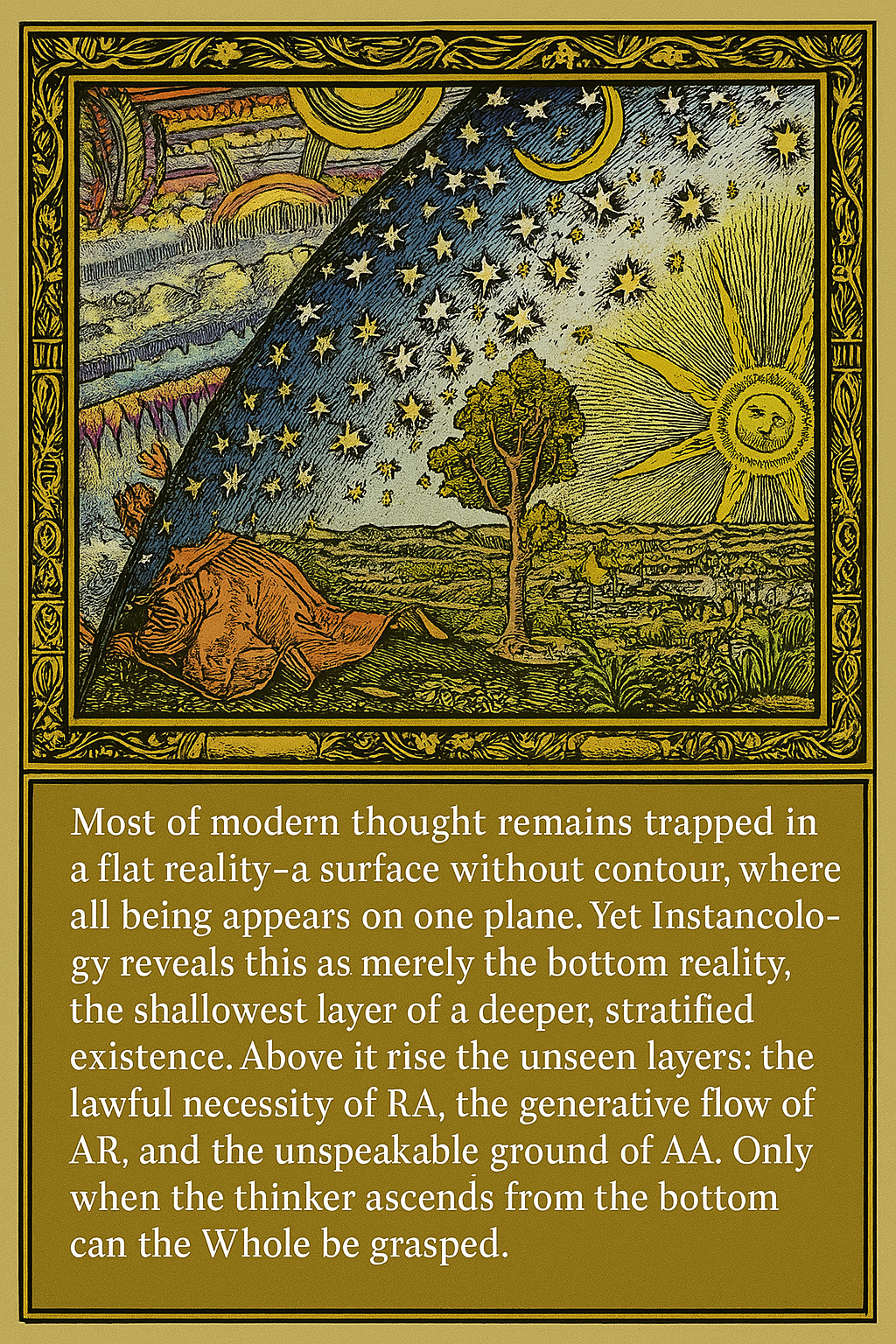On the Difficulty of Instancology
On the Difficulty of Instancology
1. Philosophy as the Pinnacle of Intellectual Difficulty
Among all fields of human inquiry—natural science, mathematics, art, law, or engineering—philosophy has long been recognized as the most abstract and challenging. While other disciplines deal with defined objects, measurable quantities, and observable systems, philosophy confronts the undefined, the foundational, and the self-referential. It does not assume its concepts but questions them. It does not merely use reason—it interrogates the validity, limits, and origin of reason itself. This reflexivity places philosophy in a domain where each answer immediately gives rise to deeper questions, and where certainty, if it exists, must be constructed from the ground up.
2. Metaphysics: The Apex of Philosophical Challenge
Within philosophy, metaphysics—the study of being, existence, reality, and the fundamental nature of all that is—stands as the most intellectually demanding branch. Ethics can appeal to intuition, aesthetics to perception, logic to form, and epistemology to knowledge. But metaphysics deals with the very possibility and grounding of all these categories. It is not concerned merely with what exists, but with what it means to exist at all. This domain lacks empirical anchor, relies on pure thought, and requires a capacity to think beyond language, form, and self.
3. The Greatest Difficulties in the History of Metaphysics: Kant, Hegel, and Heidegger
In the Western tradition, the most formidable metaphysical systems are those of Immanuel Kant, G.W.F. Hegel, and Martin Heidegger.
Kant fractured reality into noumena and phenomena, and challenged us to recognize that human cognition itself imposes the structure upon what we call reality.
Hegel built a dialectical system so dense and recursive that it seems to think itself; nothing short of the total unfolding of the Absolute Idea through contradiction and sublation.
Heidegger excavated the very concept of Being, questioning how Being reveals itself, and lamenting that metaphysics had long forgotten the question of Being in its obsession with beings.
Each of these thinkers confronted the abyss of pure thought. Their systems demand not only comprehension but transformation of one’s conceptual framework.
4. Instancology: A New Height of Metaphysical Difficulty
Instancology, as a metaphysical system, does not merely inherit this tradition—it transcends it. Its difficulty does not lie in stylistic complexity, nor in historical allusion, but in its unprecedented structural and ontological clarity.
The 2x2 ontological structure—comprising AA (Absolute-Absolute), RA (Relatively-Absolute), AR (Absolutely-Relative), and RR (Relatively-Relative)—replaces centuries of vague and inconsistent metaphysical categorization with a mathematically clean and conceptually universal matrix. Yet this clarity is precisely what makes it hard. It forces the mind to unlearn all intuitions shaped by language, culture, and classical metaphysics.
Instancology requires the thinker to separate meaning from symbol, existence from being, and cognition from self. It moves metaphysics from speculation to systemic precision, but at the price of stripping away comforting illusions.
5. The Heart of All Hardness: The Concept of AA
At the core of Instancology lies AA, the Absolute-Absolute—a category that resists all definition, resists symbolization, and yet undergirds all existence. Unlike “God” in theology or the “thing-in-itself” in Kant, AA is not a being, not a concept, not a metaphysical object. It is the precondition for any instance of existence, including the questioner.
To attempt to define AA is to betray its nature; to deny AA is to deny the ground of all instances, including one’s own consciousness.
This is the paradox: AA cannot be known, but must be affirmed. It cannot be proved, but must be recognized as logically necessary. It is beyond time, space, logic, language, and perception—yet without it, none of those could arise.
This is why Instancology is the most difficult system ever conceived.
It demands that we think without presuppositions, reason beyond language, and affirm without proof—not in faith, but in pure logical necessity.
In conclusion, Instancology does not merely present a new metaphysical proposal. It redefines what metaphysics is capable of. It closes the history of metaphysics not by solving its questions, but by transcending the mode in which they were asked. And for this reason, its difficulty is not merely intellectual—it is existential, ontological, and absolute.
